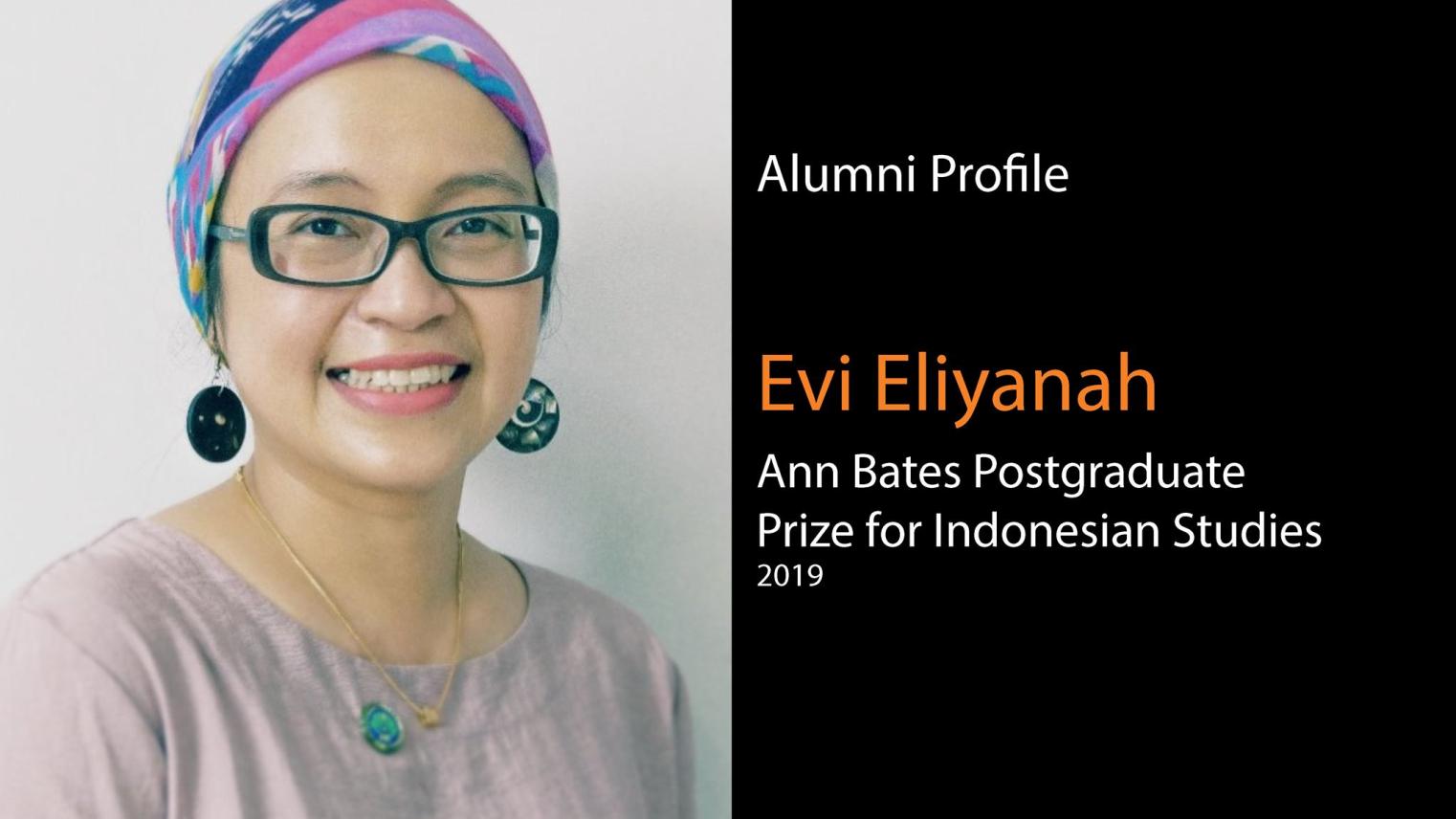Alumni profile: Dr Evi Eliyanah

HL Alumni Dr Evi Eliyanah is the 2019 recipient of the Ann Bates Postgraduate Prize for Indonesian Studies. She talked with us about her research on gender representation in Indonesian cinema and the value of studying pop-culture and media.
Tell us about the research that led to you receiving the Ann Bates Postgraduate Prize for Indonesian Studies.
My PhD research explores gender politics in reconfiguring ideal masculinity through Indonesian cinema. I examined Indonesian filmmakers’ struggles in undermining the hegemonic ideal masculinity, known in Indonesia as bapakism. This research focuses on the crucial years of 2000–2014, during which profound socio-political and economic shifts forced changes to Indonesia’s official patterning of gender relations. Consequently, these changes provoked a requestioning of what constituted ideal masculinity, as well as femininity, in Indonesia.
My thesis is interested in unpacking commercial filmmakers’ choices, negotiations and compromises in shaping what forms of ideal masculinities could be represented and idealised in Indonesian commercial cinema at this given time. Methodologically, I combined field research, interface ethnography and content analysis. I argue that commercial filmmakers struggled to innovate and experiment with alternative ideals which promoted equal and fluid gender relations on the big screen. Yet, these struggles with gender politics were overshadowed by middle-class biases and moral panic.
How did your interest in gender and Indonesian cinema evolve?
I love watching films and I am interested in researching gender politics. They are the two things that led to my PhD. At first, I was more into women filmmakers and their contribution in shaping representations of ideal femininity on the silver screen. Yet, as I went deeper into the literature, I found that scholarly investigations into women, femininity and non-heteronormative gender and sexualities were more numerous than investigations into men and portrayals for masculinity.
I began to ask whether men had never had any issue with the contemporary gender order and whether masculinities—including the hegemonic one—are ever problematic. I was aware that men were likely the immediate beneficiaries of patriarchy; yet, do all men receive the same benefits? How do the social relations among masculinities, as well as between masculinities and femininities, shape the social relations among men and between men and women? While the conceptions of femininities have arguably changed in the twenty first century, have the conceptions of masculinities—and the social relations among them—also changed? If so, why, how, in which directions and to whose advantage?
What do you see as the value of studying pop-culture and media? What insight does it give to politics and other social dynamics?
Pop-culture and media must not be seen as neutral and merely intended for entertainment. I see them also as an arena of ideological contestation, including that of gender. It is an arena of struggle to contest or defend certain social constructions and beliefs. In the case of my research, I am interested in unpacking how the struggle unfolds in commercial cinema. Commercial cinema is a site of struggle where hegemonic masculinity is established and maintained by the dominant group, and also where subordinate masculinities are negotiated. Indeed, commercial cinema, like any other forms of pop-culture and media, is not an arena where public consent is won once and for all by the dominant group espousing hegemonic masculinity. It is an arena a continuous struggle.
What are you working on now?
I am currently working on two research topics: representation of marriage patterns in Indonesian popular culture and the representations of Arab Muslims in Indonesian cinema. With the first topic, I am collaborating with Dr. Ariane Utomo (of the University of Melbourne). We are interested in mapping the popular representations of marriage patterns among youths. We look at how young Indonesians use social media, films and literature to advocate certain patterns of marriage and why. Through this research, we expect to see patterns of social changes in contemporary Indonesia.
With the second topic, it is an offshoot of my previous work in collaboration with Dr. Mirjam Lucking (of Hebrew University of Jerusalem). I am interested in how the diversity of Islamic practices are represented on the silver screen. I find that certain forms of practice are more favoured and promoted, while others are denounced. This research will provide insights into the intensifying Islamisation in Indonesia, especially to the social relations among various groups of Muslims and the diverse Islamic practices.
If you wish to support research like this, you can now donate to the School of Culture, History & Language fund.